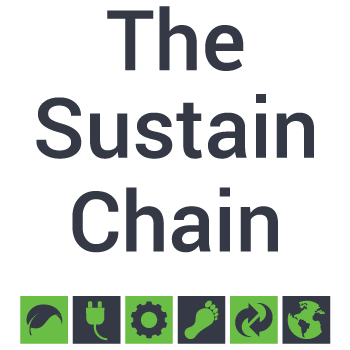CSR: Navigating Sustainable Supply Chain Challenges
Overcoming the hurdles in sustainably managing a supply chain is vital for businesses eager to lessen their ecological footprint and champion ethical practices, as customers are keen to understand how a business takes its CSR responsibilities. Perhaps you already know that a supply chain is an intricate web that connects individuals, organisations, resources, processes, and technology. All these come together so that a specific product is produced and distributed.
Now, this journey spans the procurement of raw materials to the final product’s delivery and all the phases in between. The primary goal of an environmentally sustainable supply chain is to accomplish these tasks in a manner that’s good for Mother Earth, fair to people involved, and financially sustainable for the long haul. Before we go any further, let’s take a closer look at the hurdles that companies and businesses worldwide typically encounter regarding their supply chain operations. Afterward, we will explore strategies that can empower your sustainable transition to create a more resilient future for your company and the planet.
Identifying the Obstacles
First, it’s crucial to pinpoint and understand the unique challenges we’ll encounter in making supply chains more environmentally sustainable.
Environmental Issues
A significant concern in establishing a green supply chain is mitigating environmental degradation. This involves efforts to cut down on waste, reduce carbon emissions, and preserve natural resources. For example, shipping products across vast distances typically consumes substantial fuel, thereby increasing carbon emissions.
Ethical Labour Practices
Another major challenge is ensuring the welfare and safety of workers throughout the supply chain. Here, the question is how companies can successfully address the accompanying issues, which include child labour, unfair pay, and unsafe factory conditions. For any business concerned about their CSR obligations, this is a key priority.
Financial Considerations
One thing that can stop companies from wanting to adopt greener practices is the substantial initial expenses involved in making such a transition. Sustainable materials tend to cost more. On top of that, effective waste management systems can demand hefty financial commitments that can add to cash flow strain.
Complexity and Clarity
Supply chains are inherently complicated. There are numerous phases and participants involved. Maintaining high supply chain standards in performance, transparency, and oversight across all these facets can, therefore, be intimidating. So, imagine how much more difficult it can be when you also factor in the necessity of ensuring the entire chain’s sustainability.
Legal Compliance
Different jurisdictions impose varied regulations on environmental conservation and labour rights. For companies that conduct business internationally, making every step of the supply chain adhere to all these disparate laws can be a confusing administrative must-do.
Indeed, transitioning your supply chain towards greener practices can be challenging. However, there are strategies you can embrace to bolster their successful implementation.
Management Strategies for Supply Chain Sustainability
Here are several top-notch tips to help you power through the difficulties of achieving a more ecologically sound supply chain:
Adopting Green Practices
Businesses can lessen their environmental impact by switching to renewable energy, optimising logistics to reduce fuel usage, and selecting sustainable product materials.
Efficient Maintenance and Upgrades
Sustainability in the supply chain extends to the proactive maintenance and upgrading of equipment to avert costly breakdowns and minimise waste. You can be even more strategic by investing in high-quality parts, such as heavy-duty castors, which extend the lifespan of machinery and enhance their efficiency. The resulting benefits are energy savings and reduced environmental impact from manufacturing and disposal.
Leveraging Technology
Modern technology can significantly contribute to more sustainable supply chains. For instance, blockchain can increase transparency, enabling firms to verify the responsible sourcing of their materials. Similarly, analytics can refine logistics and decrease emissions.
Collaborating for Sustainability
Forging robust partnerships with suppliers and collaborators who value sustainability can ensure the continuity of eco-friendly practices across the supply chain. Such cooperation can facilitate the sharing of resources and knowledge, simplifying the implementation of green practices.
Eyeing Long-Term Gains
Although sustainable measures might incur higher costs initially, they often result in substantial long-term advantages, including lower energy expenses, enhanced brand image, and adherence to regulations. These can potentially lead to cost savings and increased customer attraction.
It’s encouraging to note that tax considerations are increasingly central to making supply chains more resilient and sustainable. Governments worldwide are introducing tax incentives, such as funding, grants, credits, and rebates, alongside penalties for environmentally harmful activities to encourage businesses to adopt more sustainable practices?. For example, the EU is leading with green incentives, while the US has allocated billions in tax credits to clean energy projects.
Regulatory Adaptation
Keeping abreast of and compliant with local, national, and international laws is vital. This avoids legal issues and aligns a company’s operations with worldwide sustainability benchmarks.
One strategy is to understand and anticipate regulatory changes. Businesses must have to keep up with current and upcoming sustainability regulations. This involves understanding existing regulations, anticipating future changes, and preparing accordingly. Companies can engage with specialised climate modellers and experts to forecast potential regulatory scenarios and assess their impact.
Engaging Stakeholders
Openly communicating with stakeholders—customers, employees, and community members—about sustainability initiatives can build support and promote environmentally responsible consumer habits. Feedback from these engagements can be invaluable in refining supply chain sustainability.
The Bottom Line
Steering through the complexities of fostering a sustainable supply chain demands a dedicated approach towards environmental preservation, social equity, and economic sustainability. Despite the challenges, investing in such a supply chain holds significant value for the future, potentially offering a competitive edge, boosting profitability, and, most importantly, contributing to a healthier environment.
Through embracing green methods, utilising technology, engaging in collaborative partnerships, and focusing on the enduring advantages, businesses can surmount these drawbacks and play a pivotal role in advancing sustainable development.
Author


Jeanicka, an outgoing author, is renowned for her wit & charm. Her curiosity & thirst for knowledge helped her become a fast learner in science, tech, literature & arts. She writes to share ideas & experiences, driven by a passion for writing.

